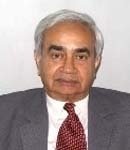Isolating Pakistan
12 Jun, 2000 · 364
P.R.Chari argues isolating Pakistan would weaken the NAM and other multilateral forums of the developing world
That
India should be angered with
Pakistan is undeniable. Its yeoman efforts to get
Pakistan expelled from several multilateral assemblages informs that this constitutes a new thrust for Indian foreign policy. Thus
Pakistan has been expelled from the Commonwealth; it found
Pakistan ’s military coup, which overthrew Nawaz Sharif’s civilian government, unacceptable. Several Commonwealth members like Nigeria supported India’s effort’s since its present civilian leaders nurture bitter memories of the excesses committed upon them by their own military government.
India argued thereafter in the Nonaligned Foreign Minister’s meeting at
Cartagena that “governments [that] have come to power through unconstitutional means” should be removed from the Movement. This recommendation was embodied in the draft resolutions of the meeting; it will be placed the
Summit of the Nonaligned Movement in
Dhaka next year for adoption. At the subsequent G-77 Summit in
Havana , the final document commits the member-countries to “promoting democracy and strengthening the rule of law”.
Pakistan ’s polity in terms of military versus civilian rule raises other problems. Quite recently, the majority of Pakistanis preferred military to venal civilian rule when the military coup took place. For the present the military are considered its saviors and the civilian leaders its exploiters. Who, then, should judge this issue--the people in
Pakistan or the democracy zealots in the developing world?
India have been expelled at that time from these multilateral forums?
Cairo was that candidate countries should “have adopted an independent policy based on the co-existence of States with different political and social systems…” The eclecticism of its founding fathers is being forgotten now in the melee.
Pakistan would further weaken the Nonaligned Movement and other multilateral forums of the developing world; this would compound their growing irrelevance. The large dimensions of this problem should have entered the calculus of policy-makers in
New Delhi . Unfortunately, they seem to be working hard to establish, as they have been doing for decades, that
India is as big as
Pakistan .
Laying down the democracy criterion for membership of these multilateral forums is fraught with two major pitfalls.
· First, true democracies in the developing world are difficult to find. Incomplete state-formation and the plenitude of ethno-political, religio-communal and socio-economic struggles in these countries forces their governments to adopt repressive steps; this erodes the democratic norm. But they have to balance the need for granting autonomy to their minorities with maintaining the integrity of this state, which becomes difficult in practice.
· Second, many governments in the developing world are only ensuring the trappings of democracy, not its substance. A lack of transparency, insensitivity to local demands, widespread corruption, withering away of institutions and so on highlight the imperfections in such nominal democracies. Therefore, laying down the democracy criteria can become very contentious.
Defining
There is another uncomfortable problem at home. Shortly, India would be recollecting the 25 anniversary of a shameful episode in its post-Independence history when civil liberties were abrogated, the Constitution trifled with, and its citizens denied even the right to life by the Courts. The Emergency was imposed for no great national purpose, but only to maintain Indira Gandhi in power. Should
Rhetoric apart, the original criteria for inclusion in the membership of the Nonaligned Movement, decided in a preparatory conference held in Cairo in 1961, laid down that applicants should not be members of any multilateral military alliance, or have a bilateral military agreement with a Great Power, or be members of a regional defence pact, or have granted military bases to a Great Power. Qualifying that such actions should not have been undertaken in “the context of Great Power conflicts” watered down these prohibitions.
In practice, even these watered down criteria were generously interpreted to avoid proceeding against delinquents. Thus, Treaties of Peace, Friendship and Cooperation, despite their dormant security clauses, were not equated with “military agreements,” grant of “military bases to a Great Power rivalry”. The intention was to avoid taking precipitate action to upset the fragile unity of the Nonaligned Movement; it was and remains a disparate group of countries with little in common.
The principle unifying the Movement was its desire to steer clear of Cold War rivalries between the two superpowers, acquiring some leverage thereby as a balancing force. After the Cold War ended this unity and leverage has greatly eroded. Laying stress at this stage on the democracy norm, which is irrelevant to the purposes of the Nonaligned Movement, would further weaken it, whilst interrogating its traditional catholicity and habit of tolerance towards member-states. Significantly, the very first criterion for membership of the Movement decided at
Isolating


